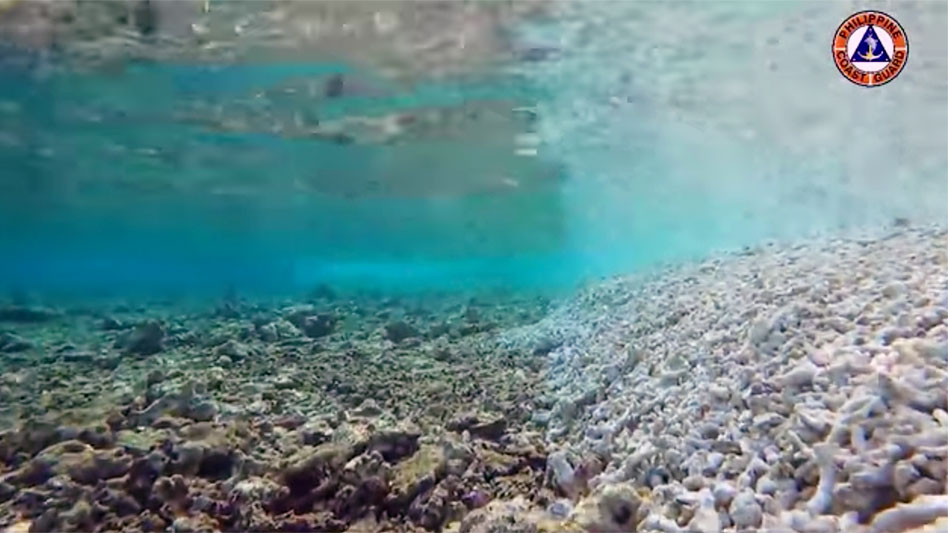PCG reveals ‘severe damage’ to disputed shoals

By John Victor D. Ordoñez, Reporter
THE PHILIPPINE Coast Guard (PCG) revealed on Monday that there is now “severe damage” to marine life in Rozul Reef (Iroquios Reef) and Escoda Shoal (Sabina Shoal) in the South China Sea, maritime areas where swarming by Chinese vessels had been reported.
“The surveys conducted in Escoda Shoal revealed visible discoloration of its seabed, strongly indicating that deliberate activities may have been undertaken to modify the natural topography of its underwater terrain,” the PCG said in a statement.
The PCG also posted an underwater video of the damage in the seabed of Escoda Shoal on its Facebook page.
Commodore Jay Tarriela, PCG spokesman, confirmed severe damage to the marine environment in an Armed Forces of the Philippines (AFP) report, stating: “The continued swarming for indiscriminate illegal and destructive fishing activities of the Chinese maritime militia in Rozul Reef and Escoda Shoal may have directly caused the degradation and destruction of the marine environment in the West Philippine Sea features.”
The Chinese Embassy in Manila did not immediately reply to an e-mail seeking comment.
Last week, the National Security Council of the Philippines reported that Chinese research vessels had been roaming the eastern side of the West Philippine Sea, just as the military flagged the resurgence of Beijing’s swarming tactics.
The so-called swarming activity was reported days after the Chinese Coast Guard’s repeated attempts to block Philippine resupply missions to the Second Thomas Shoal.
Second Thomas Shoal is about 200 kilometers from the Philippine island of Palawan and more than 1,000 kilometers from China’s nearest major landmass, Hainan Island.
“The PCG emphasizes the importance of protecting and preserving our marine environment, which plays a crucial role in sustaining marine life and supporting local communities,” the PCG said.
In a televised interview, Senator Francis N. Tolentino said the destruction of the coral reef could be linked to a possible reclamation project in the area.
“I think there is a deeper reason for what is being done in the area… not just in destroying the corals, but as a prelude for something,” Mr. Tolentino said in Filipino. “If you destroy these (corals), you can now reclaim the area.”
The senator pointed out that harvesting the corals violated the United Nations Convention on the Law of the Sea (UNCLOS), which the Philippines could challenge before the UN tribunal.
Last month, Energy Secretary Raphael P.M. Lotilla said that President Ferdinand R. Marcos, Jr. had given the go-signal for Manila to conduct drilling and exploration activities at Reed Bank and other areas of the South China Sea within the Philippines’ exclusive economic zone (EEZ).
Former Supreme Court Justice Antonio T. Carpio earlier urged the government to explore Reed Bank amid rising energy costs and the drying up of the Malampaya natural gas field.
Tensions between the Philippines and China have worsened after the Chinese Coast Guard fired water cannons to block Manila’s resupply mission at Second Thomas Shoal on Aug. 5.
Mr. Carpio said the move was China signaling to Manila not to send survey ships to Reed Bank.



